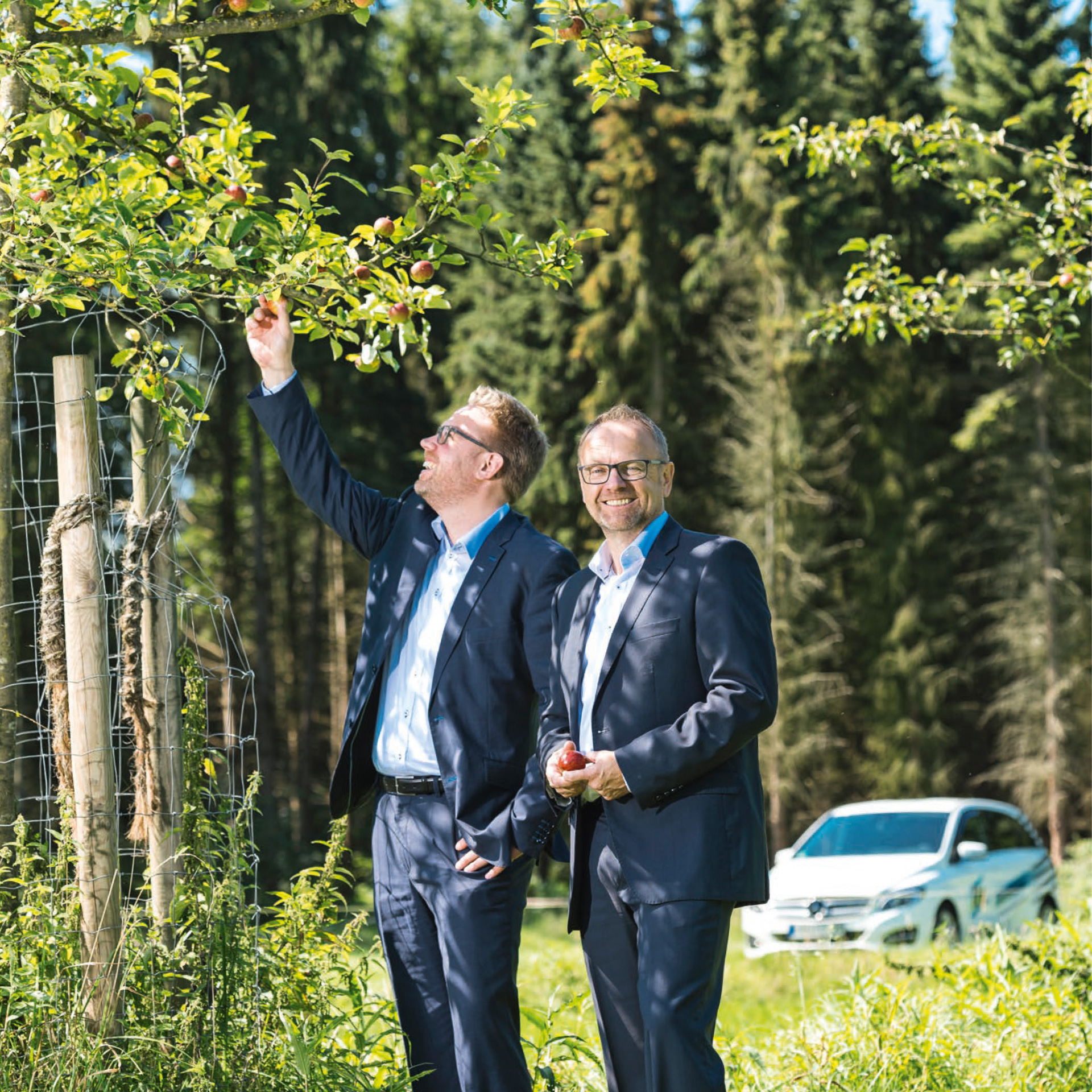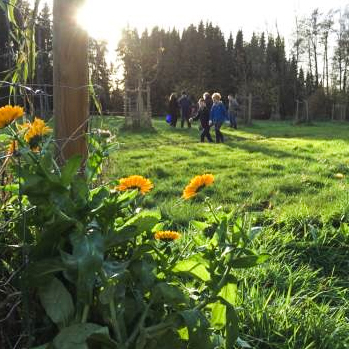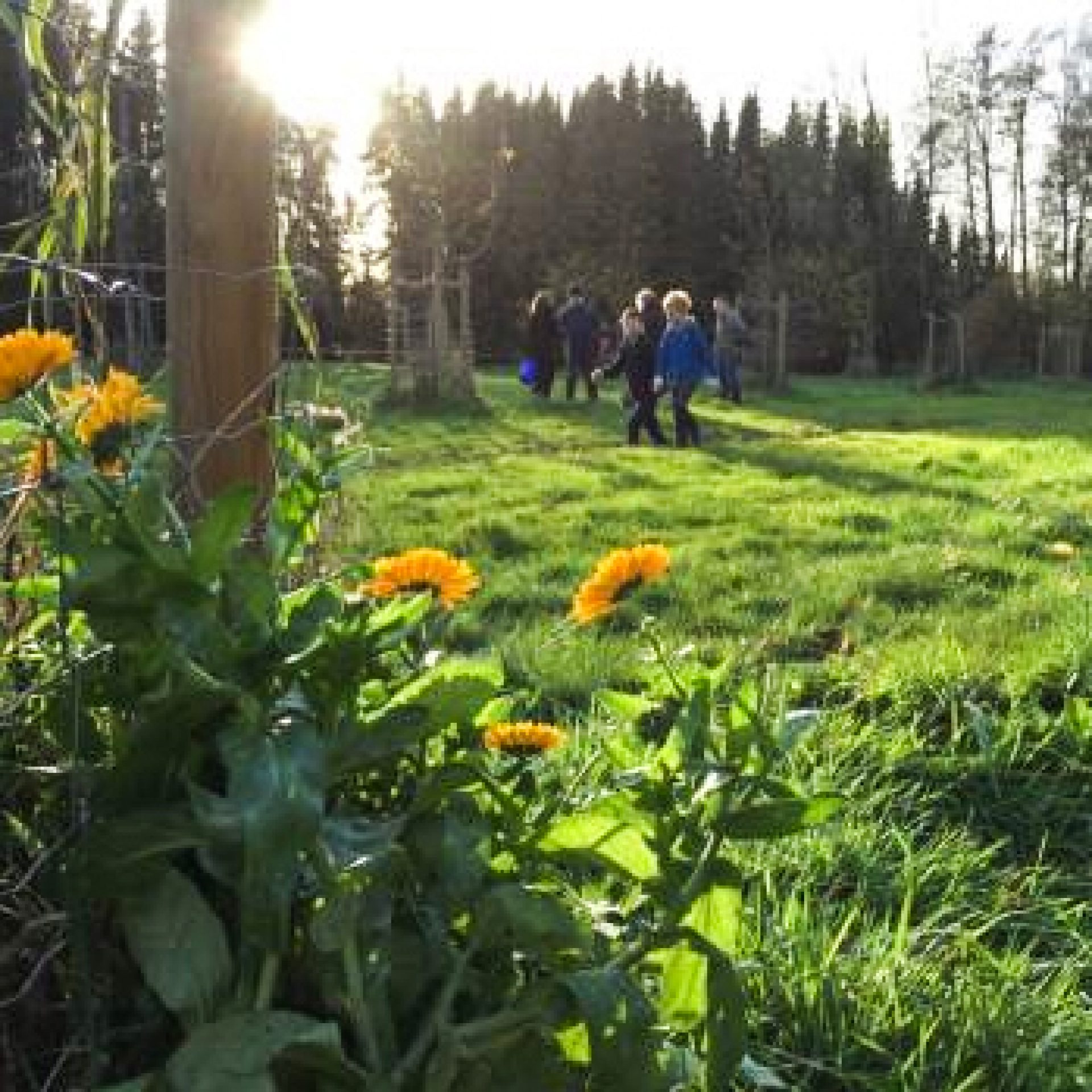
WE ARE WHAT WE DO
L.I.T. AND »RUDI-ROTBEIN-CLUB« FARM OWN MEADOW ORCHARD

Robert Hennemann, Head of Driver Management, and Ingo Schreiber, Board Member of L.I.T. AG, are happy to pay a visit to the meadow orchard.


Robert Hennemann, Head of Driver Management, and Ingo Schreiber, Board Member of L.I.T. AG, are happy to pay a visit to the meadow orchard.
Robert Hennemann, Head of Driver Management, and Ingo Schreiber, Board Member of L.I.T. AG, are happy to pay a visit to the meadow orchard.


Meadow orchards are among the most endangered biotopes in Central Europe. Monocultures, buildings, conifers and the abandonment of agricultural land are the reasons for the sharp decline in organic fruit growing. Withal it offers a habitat for a species-rich animal world. Together with the children and youth group of the NABU Wesermarsch, we set an example for rethinking and laid out a meadow orchard on a 1.4 hectare area. 30 fruit trees stand on the meadow near Elsfleth in the Wesermarsch – different varieties, age and size classes, tall and widely spread across the landscape, just as a meadow orchard should look like. The trees bear apples, pears, cherries, plums or walnuts, while the meadow is used as grazing land. Nesting aids for birds have also been set up and two bee colonies have been domiciled. In short: the environmental project launched in 2014 is a complete success. But what’s the use of it?
We place a lot of importance on our commitment to biodiversity, healthy habitat protection, clean air and water, healthy soil, and careful use of our finite resources. »We’ve achieved something great if we can inspire the youngest amongst us for nature conservation,« says Fokke Fels Chief Excecutive of L.I.T. AG. On the L.I.T.’s meadow orchard the children can put their motto into practice and not only learn something about the ecological importance of orchards, but especially get to know the local flora and fauna. For the Central European biodiversity, orchards with over 5,000 animal and plant species and over 3,000 types of fruit play an outstanding role. Little owls, wrynecks and green woodpeckers are particularly at home there, as are many insects and spiders. Fels is particularly pleased with the regional connection. As a logistics service provider operating across Europe, we recognize our responsibility. »Our activities have an influence on the environment and this must be compensated,« says the Chief Executive of L.I.T. AG. With this small but nice project, we want to start nature conservation right on our doorstep. And hope for imitators.
Meadow orchards are among the most endangered biotopes in Central Europe. Monocultures, buildings, conifers and the abandonment of agricultural land are the reasons for the sharp decline in organic fruit growing. Withal it offers a habitat for a species-rich animal world. Together with the children and youth group of the NABU Wesermarsch, we set an example for rethinking and laid out a meadow orchard on a 1.4 hectare area. 30 fruit trees stand on the meadow near Elsfleth in the Wesermarsch – different varieties, age and size classes, tall and widely spread across the landscape, just as a meadow orchard should look like. The trees bear apples, pears, cherries, plums or walnuts, while the meadow is used as grazing land. Nesting aids for birds have also been set up and two bee colonies have been domiciled. In short: the environmental project launched in 2014 is a complete success. But what’s the use of it?

We place a lot of importance on our commitment to biodiversity, healthy habitat protection, clean air and water, healthy soil, and careful use of our finite resources. »We’ve achieved something great if we can inspire the youngest amongst us for nature conservation,« says Fokke Fels Chief Excecutive of L.I.T. AG. On the L.I.T.’s meadow orchard the children can put their motto into practice and not only learn something about the ecological importance of orchards, but especially get to know the local flora and fauna. For the Central European biodiversity, orchards with over 5,000 animal and plant species and over 3,000 types of fruit play an outstanding role. Little owls, wrynecks and green woodpeckers are particularly at home there, as are many insects and spiders. Fels is particularly pleased with the regional connection. As a logistics service provider operating across Europe, we recognize our responsibility. »Our activities have an influence on the environment and this must be compensated,« says the Chief Executive of L.I.T. AG. With this small but nice project, we want to start nature conservation right on our doorstep. And hope for imitators.
© 2025 L.I.T. AG · Otto-Hahn-Straße 18 · 26919 Brake Data protection | Imprint | Gender regulation | Manage consent | Complaint form | AGB
© 2025 L.I.T. AG · Otto-Hahn-Straße 18 · 26919 Brake
Data protection | Imprint | Gender regulation | Manage consent | Complaint form | AGB
© 2025 L.I.T. AG
Otto-Hahn-Straße 18 · 26919 Brake
Data protection | Imprint
Gender regulation | Manage consent
Complaint form | AGB